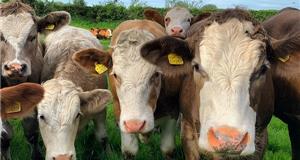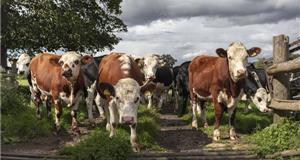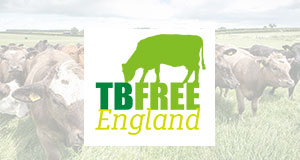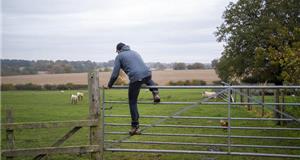The programme, due to air at 9pm on Friday 23 August, will present the findings of a four-year experiment on farmer Robert Reed’s farm to eradicate bTB without culling badgers.
The programme will suggest TB is mainly spread from cattle to cattle via slurry and that badgers are not a ‘significant factor in the spread of the disease’.
Speaking ahead of the broadcast, NFU President Tom Bradshaw said it is “completely unacceptable and irresponsible for Sir Brian May to have been given the platform he has by the BBC”, citing the complex and controversial nature of TB in cattle, and the “proven role badgers play in the cycle of infection on farms”.
It is accepted that badgers are the main wildlife host of bTB, making badger control a key part of the bTB eradication strategy within England. The link between badger and cattle infection was first suspected in the 1970s and was proven in 1997 by Professor Sir John Krebs.
Research analysis of genetic data from the bacteria that causes bTB also found that cattle are approximately ten times more likely to catch TB from badgers than badgers are to catch it from cattle. Disease transmission within badger and cattle populations occurs twice as frequently as transmission between the species.
Toll on farming families is ‘huge’
Tom said he has written to the BBC to express his “deep concern, and that of my members”.
“I am also extremely concerned the impact this programme will have on the mental health of farmers who are still impacted by this terrible disease on farm.
“The toll on them and their families is huge.
“We have said this programme is fundamentally flawed. It ignores all the independent peer-reviewed science and evidence that has gone before it; science that continues to demonstrate the current TB eradication strategy is working.
“I am also extremely concerned the impact this programme will have on the mental health of farmers who are still impacted by this terrible disease on farm."
NFU President Tom Bradshaw
“While I am sure it was well-intended, this programme focuses heavily on one farm, claiming that slurry is to blame for the widescale spread of bTB.”
Research by the government’s own body responsible for animal health, the Animal and Plant Health Agency, has determined the possibility that bTB is spread through cattle faeces as very low.
“The case study farm used to evidence May’s theory has unfortunately since suffered further bTB breakdowns,” Tom added.
Strategy based on science and evidence
For the past decade, the NFU has worked with government agencies to deliver a comprehensive bTB eradication strategy based on clear science and evidence. It is through this strategy that we have achieved a 20-year low in new TB herd breakdowns in England.
Three peer reviewed studies, the Birch review, the Godfray report and the Downs et al report, were conducted at scale, the latter showing reductions in breakdowns of bTB in cattle by 66% in Gloucestershire and 37% in Somerset.
“This is something to celebrate,” Tom said. “We are getting on top of this disease, but it has taken time and a consistent approach.”
Tom said that while it was “encouraging to see badger and cattle vaccination trials underway”, we must “keep all the tools available, including wildlife control, that have been proven to work at scale”.
Access to a comprehensive eradication strategy is a vital source of hope for affected farmers.
“We all want a future where our farms are and remain TB free,” Tom concluded.
Get support
The NFU has a dedicated TB delivery team of advisers who can offer support. Members can contact CallFirst on 0370 845 8458 to be put in touch with the TB delivery team or to speak with one of our expert legal and technical advisers.

Read the NFU's Bovine TB Strategy
The NFU’s TB Policy Advisory Group, alongside our Dairy and Livestock Boards, have driven a forward-looking bTB Strategy, setting out what farmers and food producers need to deliver on TB eradication by 2038, while maintaining and enhancing a vibrant livestock sector.





